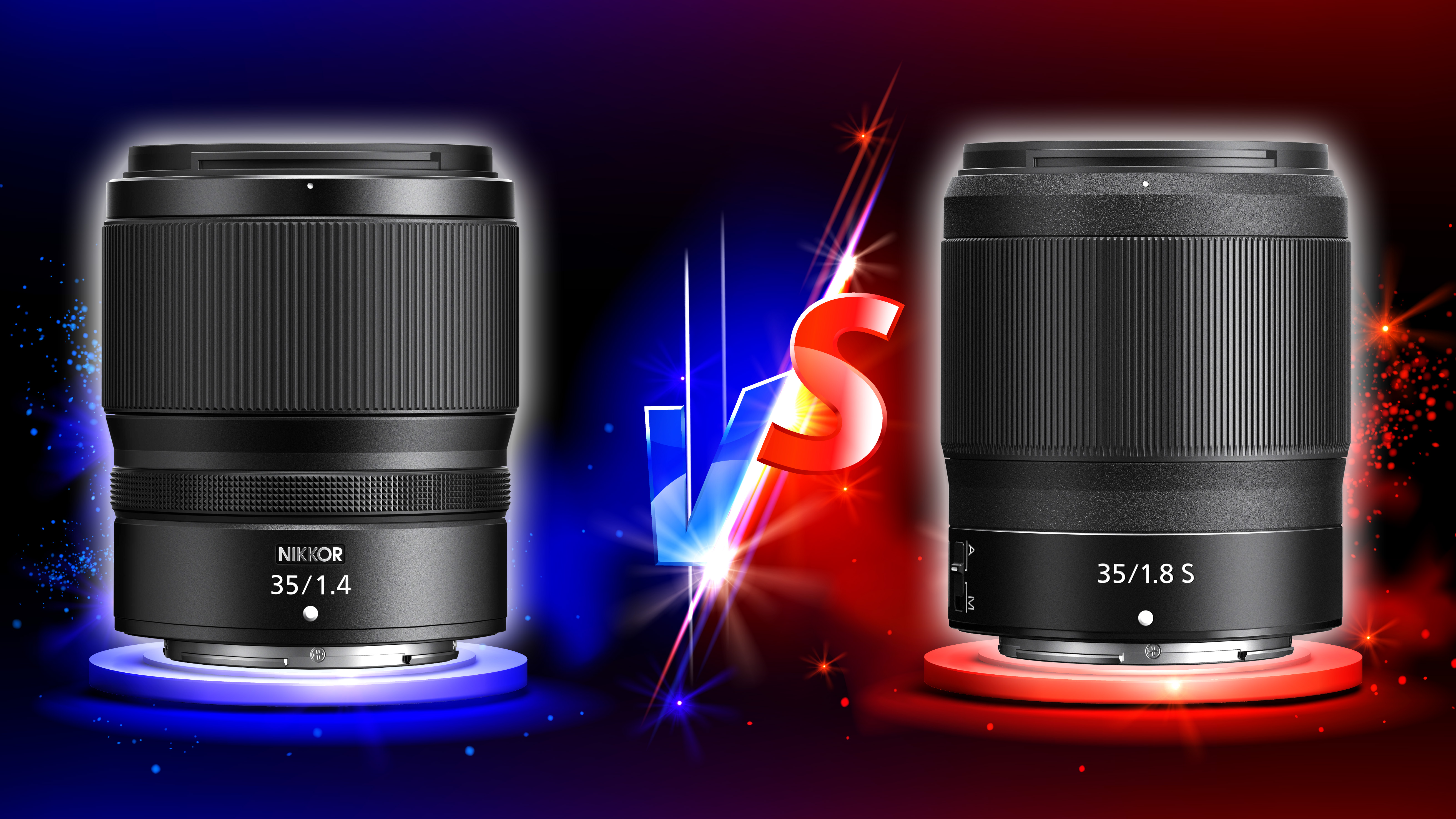
We've just reviewed Nikon's latest Z-mount lens: the Z 35mm f/1.4. As we've come to expect from the best Nikon Z lenses, it's very impressive. However, this isn't the only 35mm Z lens that Nikon offers. The older Z 35mm f/1.8 S was one of the very first Z-mount lenses, but despite its age and slower aperture rating, it's around 40% more expensive to buy than the f/1.4.
Traditionally a lens with a faster aperture has commanded a price premium over a slower optic: take standard zoom lenses as an example - a 24-70mm f/4 will always be cheaper than an f/2.8 version. But it's exactly the opposite in the case of the Nikon 35mm pair - why is that? The answer is that little 'S' moniker at the end of Z 35mm f/1.8's model name. Nikon's S-Line lenses, are, according to Nikon:
At the top of the line-up of NIKKOR Z lenses and were developed by Nikon engineers aiming at the very highest levels of optical performance...they provide distinct advantages such as the ability to shoot wide open with near-zero drop in sharpness right across the frame.
S-line lenses are also likely to receive advanced coatings like Nikon's Nano Crystal coat to minimize ghosting and flare, while their general build quality should be more robust than a non-S-Line optic, and you can expect more comprehensive weather sealing.
But is this just marketing hype to justify a premium price tag, or do S-Line lenses like the 35mm f/1.8 S actually perform significantly better than a non-S-line optic like the new Z 35mm f/1.4? Well, we've lab tested both lenses, and we can actually confirm that spending the extra cash on the f/1.8 S WILL indeed get you a higher performing lens.
Read more:
Nikon Z 35mm f/1.4 full review
Nikon Z 35mm f/1.8 S full review
The best Nikon Z lenses
Lab results
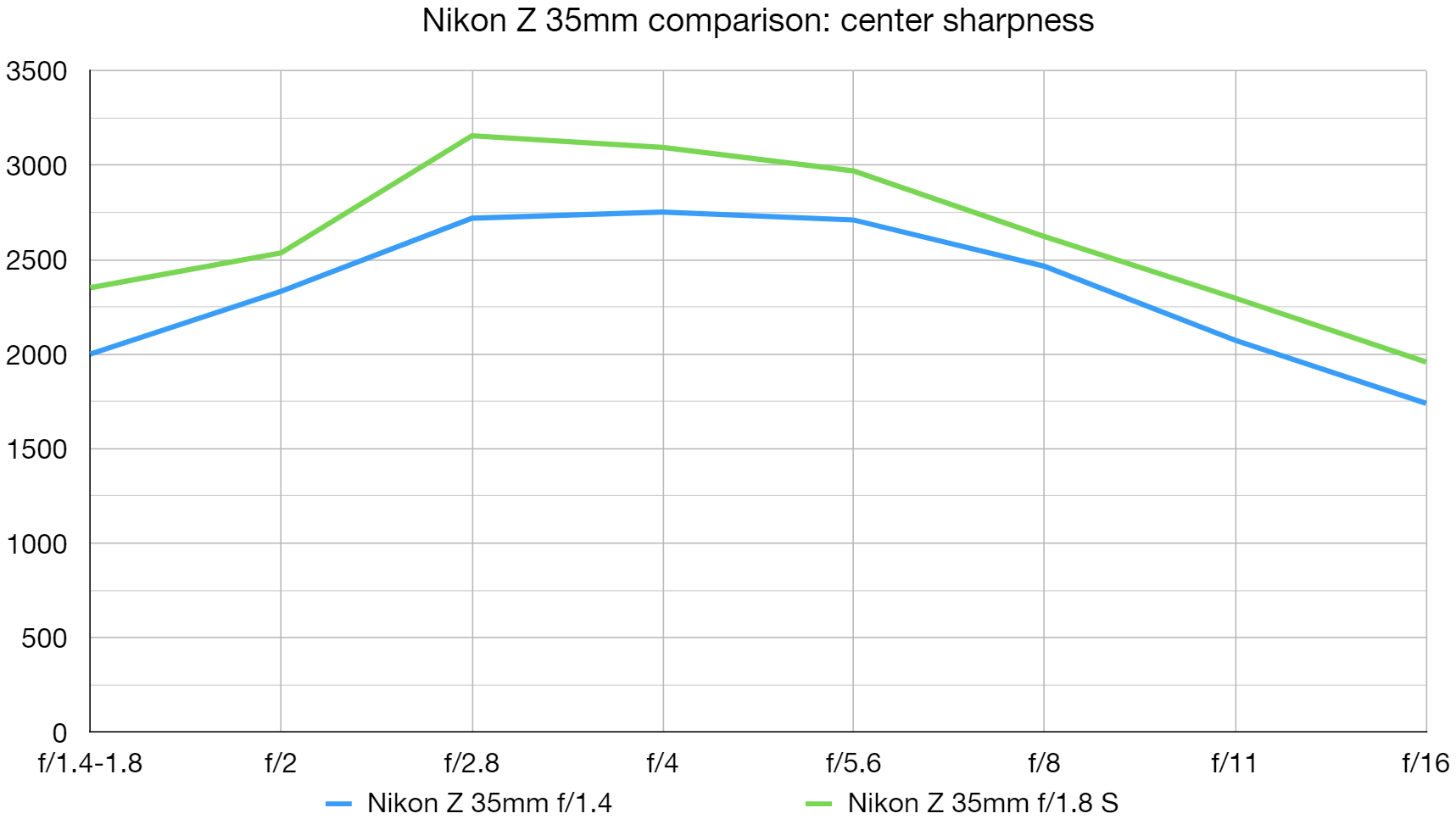
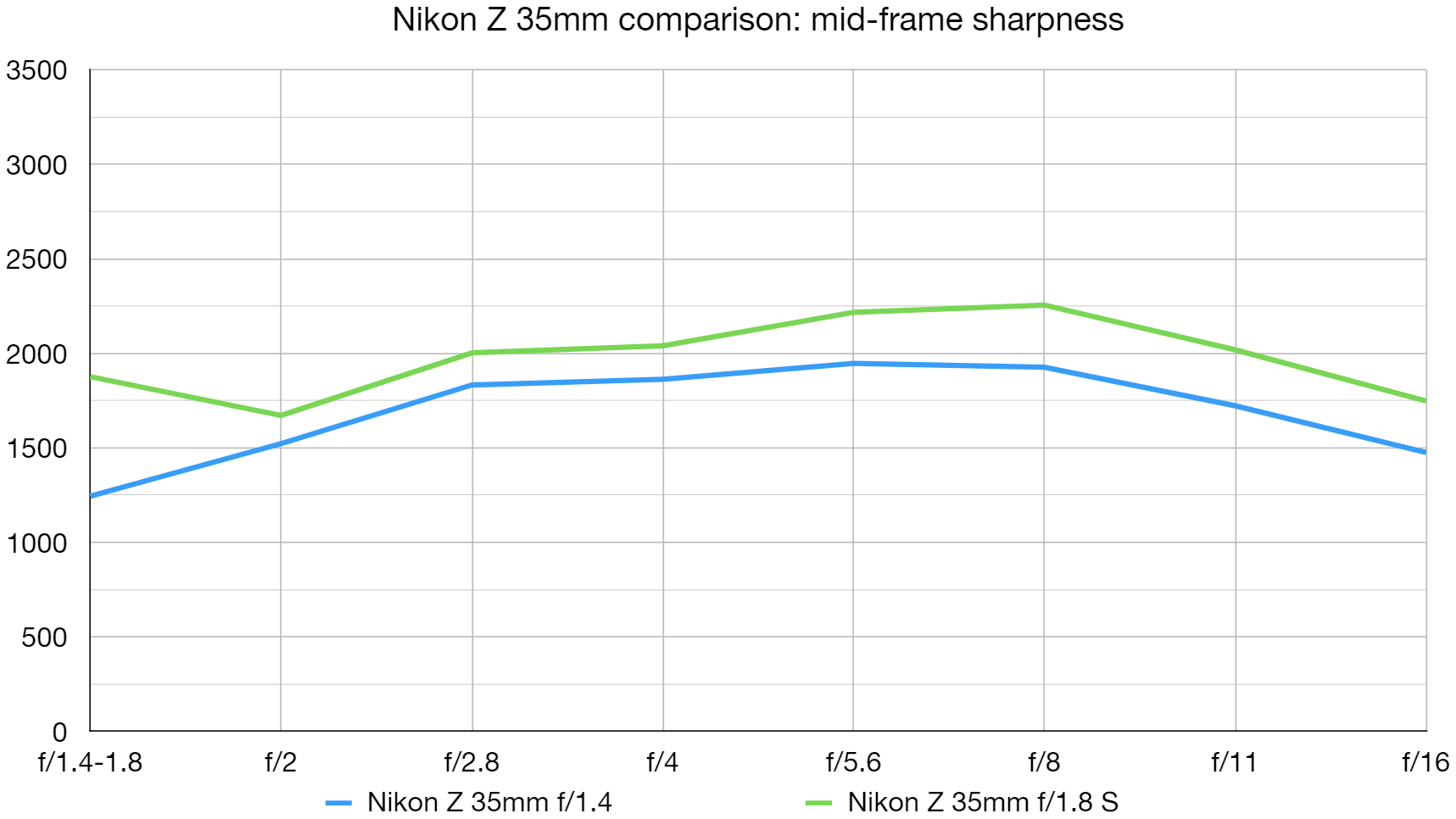
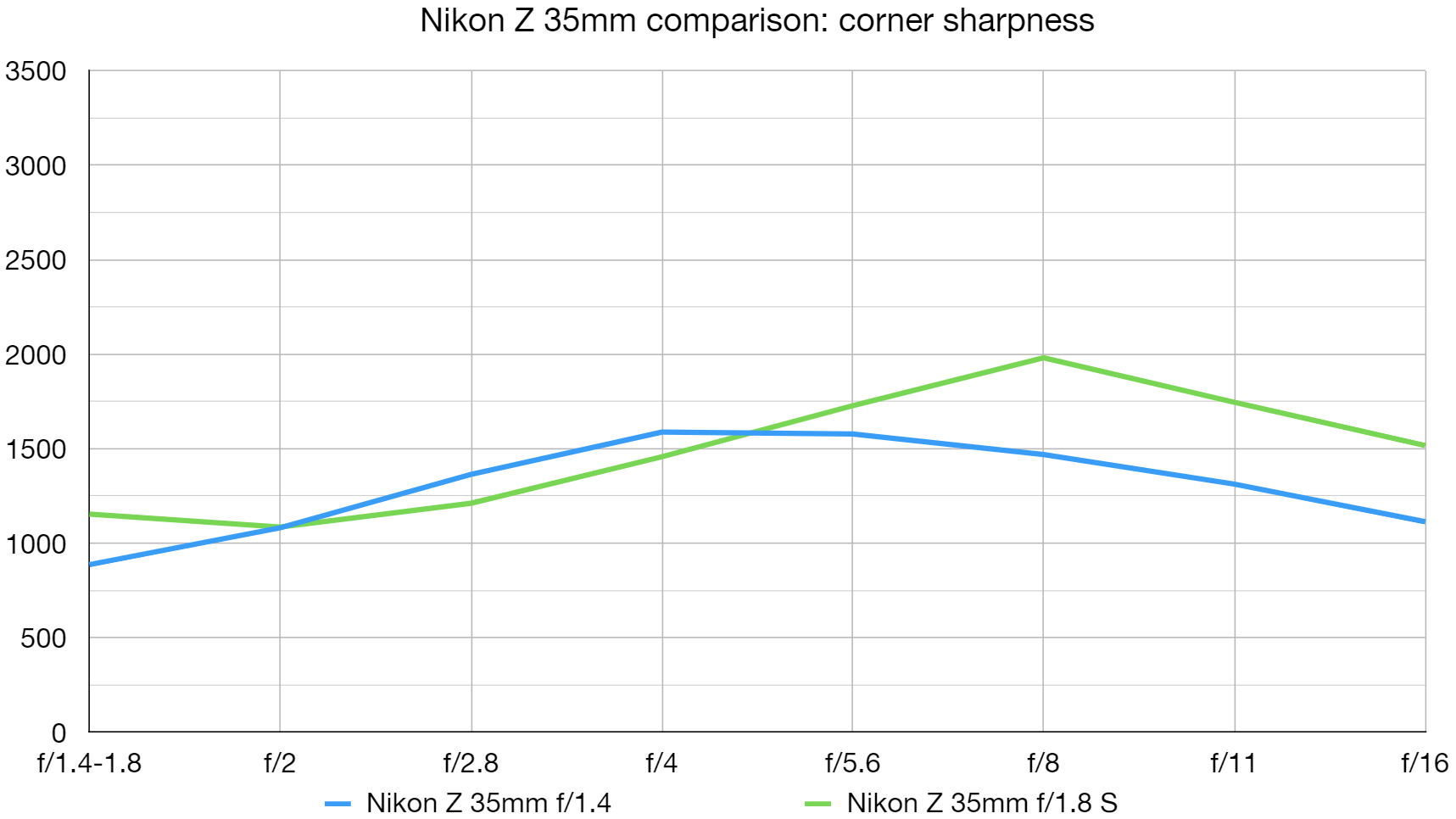
In terms of simple sharpness, the f/1.8 is noticeably and consistently sharper across the whole image frame, although it is worth noting that the f/1.4 is still a very sharp lens.
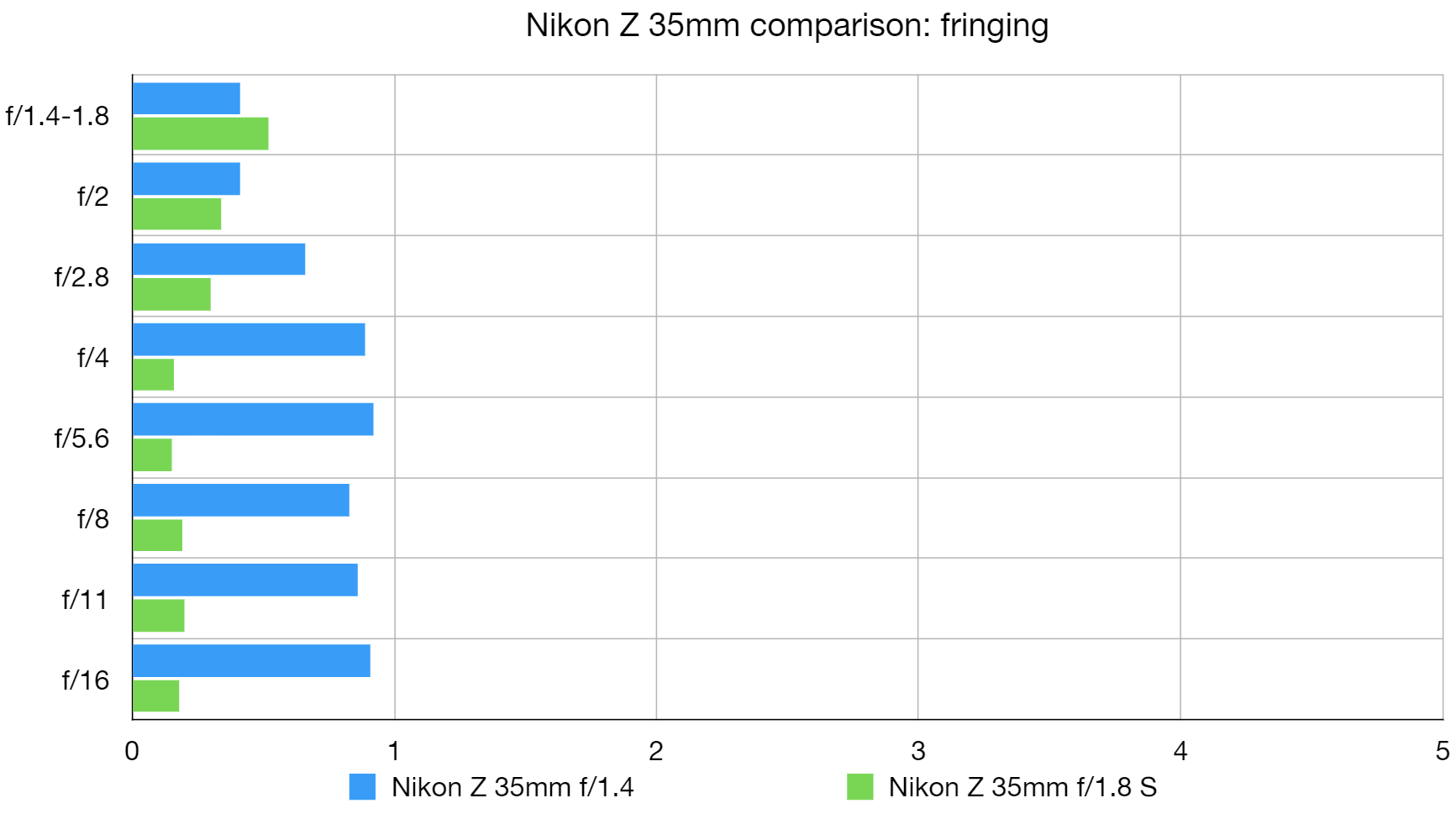
It's the same situation when we look at chromatic aberration. Both lenses keep color fringing below noticeable levels, but where the f/1.4 only just manages this, levels of fringing from the f/1.8 S are almost non-existent at smaller apertures.
We also found that both lenses also register almost zero distortion, however since Nikon Z bodies automatically correct for optical distortion and this can't be disabled, our distortion scores aren't necessarily reliable.
So there you have it: here's a rare instance of a slower lens being better than an equivalent faster optic, and it seems that Nikon S-Line premium really is worth the extra cash. None of this is to say that the Z 35mm f/1.4 is bad though - far from it - the take-home here is that the Z 35mm f/1.8 S is a truly spectacular lens.







